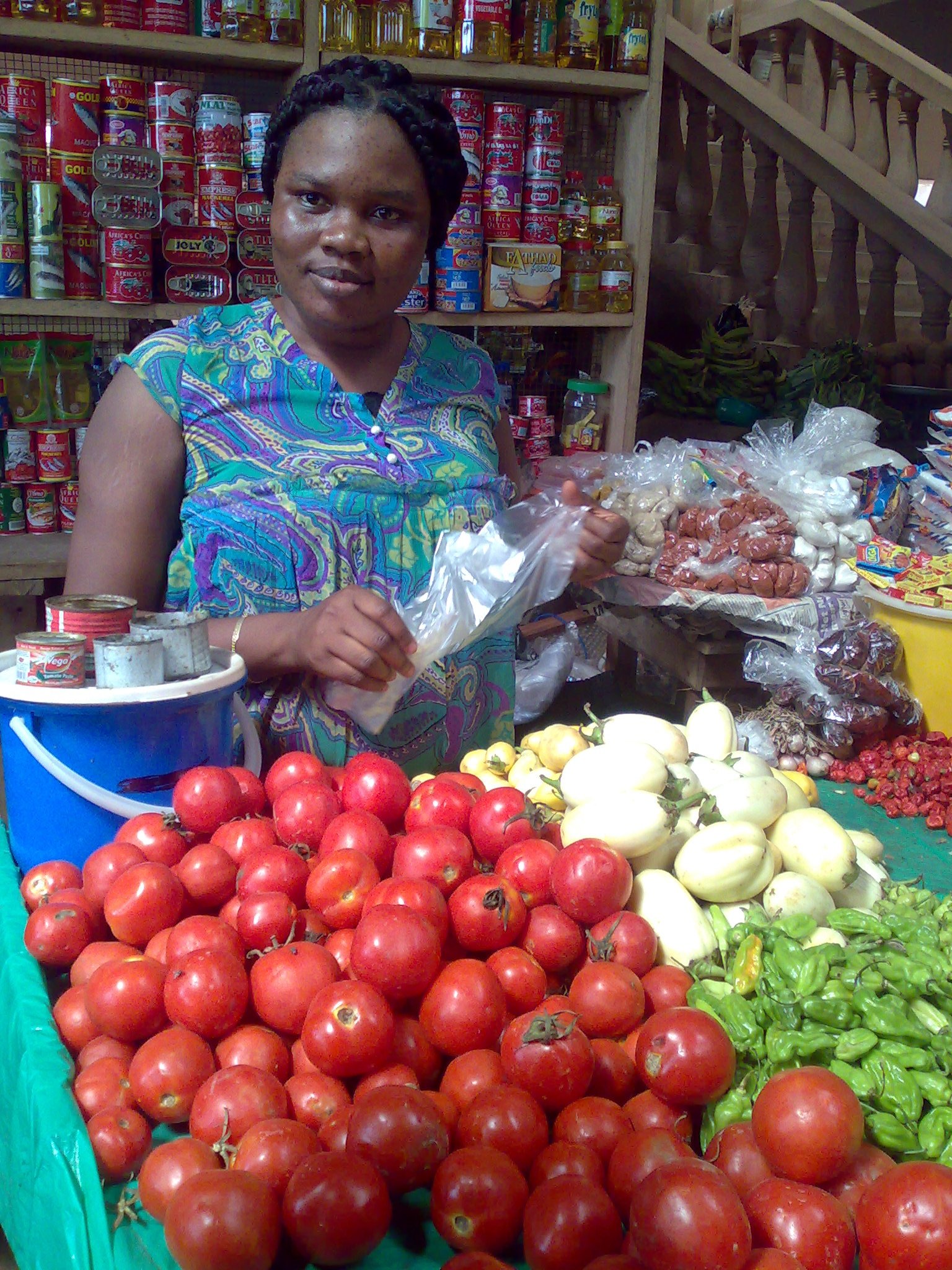All day long she carries food to customers in a metal pan balanced on her head, which causes her a persistent pain in her neck and back; sometimes the pan falls to the ground. "I have a headache and I want my mother to buy me some medicine. I always have pains in my chest. I have never been to the hospital," she told IRIN.
Berikisu arrived in Accra three weeks ago to work as a porter; her aunt, Salamatu, brought her from the Northern region, Ghana's poorest area. "She [Berikisu's mother] did not have money to take care of her - she was forced to stop school. I know it's difficult for her but there is nothing I can do," Salamatu told IRIN.
"We sleep at the market," Berikisu said. "We always pray it does not rain, but when it rains we hide under the shade in front of a store and the rain does not beat us. All I want is to make some money so I can send some home to my mother."
This is the reality of thousands of Ghanaian children. The 2009 US State Department Trafficking in Persons Report estimated that over 30,000 children worked as porters in Accra; many others ended up as sex workers.
"These kids are supposed to be in school. Their health is compromised. We also know that these kids have babies on the streets, which is a maternal health issue," Sheema Sen Gupta, who heads the Child Protection Programme at the UN Children's Fund (UNICEF), told IRIN.
Good laws, not enforced
Ghana was the first country in the world to ratify the United Nations Convention on the Rights of the Child; and has some of the best legislation in West Africa for protecting children, according to UNICEF.
A section of Ghana's constitution details the rights of the child; the juvenile justice act was passed in 2003; the Children's Act in 1998; dozens of other national policies address children's rights.
But the legislation is not often enforced. Bright Appiah, head of Children's Rights International, told IRIN: "When we implement it [Ghana's legislation] I don't think that we will see a single child [working] on the street, so enforcement is the issue where I think that we've all failed."
Even Ghana's Women's and Children's Affairs Ministry concedes it has failed. "Implementation and enforcement is where the government has fallen short," Madam Mariamah Yayah, the Acting National Director of the Department of Children, told IRIN.
In June 2009 her department started registering child porters who had migrated to the capital but stopped after logging 2,432 because they ran out of cash.
Rehabilitation
The government would be rolling out a new "holistic strategy", said Yayah. "We have to talk to the porters, find out from them if they want to go back home ... what trade they want to go into and ... talk to their parents, because some of them have been sent here by them," she told IRIN. Village chiefs and district authorities will also be involved in finding "meaningful ways" to assist children.
Government engagement is welcome, but Appiah pointed out that rehabilitating children was resource-intensive, and there was not enough monitoring, funding or expertise to see this through.
The Social Welfare Ministry had distributed sewing machines and transport fees to child porters to encourage them to return home, but the children sold the machines and came back to work in the capital as soon as they could, an unnamed ministry official told IRIN.
Child Rights International and the Ministry of Social Welfare have been running a project that covers school fees and provides school equipment for 485 children in deprived communities in Ghana's Eastern and Ashanti regions to encourage them not to migrate to Accra, or to stay home once they have gone back there. Child protection committees monitor the progress of the children and their parents.
"In this way the early warning signs are picked up and dealt with before a child is forced to leave the community," said Appiah, who noted that child migrant flows to the capital had diminished.
With support from the US Agency for International Development (USAID), the European Commission, and PLAN, a children's development organization, the project will be expand to a further 156 communities, tripling the number of children covered, said Appiah.
"What we lack is a properly coordinated effort by all to deal decisively with this challenge," he commented. "Everybody seems to be doing something on their own and there is duplication. We need to bring together government, civil society and private sector initiatives to deal with the issue."
em/aj/he
This article was produced by IRIN News while it was part of the United Nations Office for the Coordination of Humanitarian Affairs. Please send queries on copyright or liability to the UN. For more information: https://shop.un.org/rights-permissions





